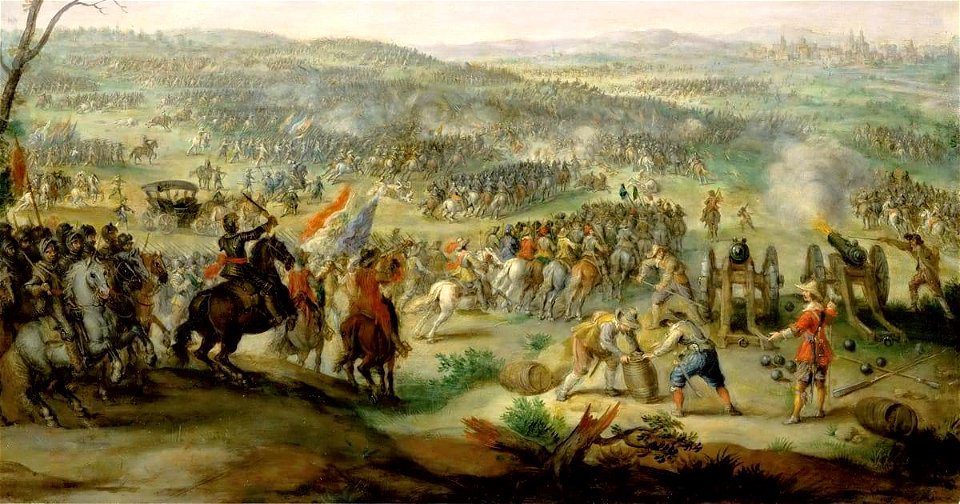The Battle of White Mountain was a significant event that shaped the course of history for the Czech Republic and Europe. The battle, which took place on November 8, 1620, was a decisive clash between the forces of the Habsburg Monarchy, led by Emperor Ferdinand II, and the Protestant Bohemian nobility.
The Bohemian nobility, who had risen against the Catholic Habsburgs in 1618, succeeded in their initial rebellion. However, their victory was short-lived. The Habsburgs, with the help of their Catholic allies, defeated the Bohemian forces at White Mountain, near Prague. This defeat marked the end of the Bohemian Revolt and the start of the Habsburg Catholic hegemony.
The consequences of the battle were far-reaching. The Protestant nobility lost their lands and privileges, and the Habsburgs began a policy of Catholicization in the lands they had conquered. The Thirty Years’ War, which had started as a conflict between Catholic and Protestant powers, continued for another 28 years, with devastating consequences for the people of Europe.
“The Battle of White Mountain was a defining moment in the history of the Czech lands. It began a period of darkness and oppression and a new cultural era. The Baroque style, which is so prevalent in Prague and other cities, is a testament to the power and influence of the Habsburgs,” said local historian Martina Novakova.
We can see the legacy of the Battle of White Mountain in the architecture and culture of the country. The Baroque style, with its magnificent Catholic churches and palaces, directly resulted from the Habsburgs’ victory and desire to showcase their power and wealth. The Catholic Church, weakened by the Protestant Reformation, regained its strength and influence in the lands under Habsburg rule.
The Battle of White Mountain was a turning point in European history, and its impact can still be felt today. It reminds us of the importance of religious freedom and tolerance and the dangers of religious extremism and intolerance.





